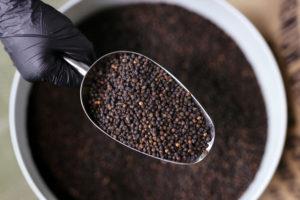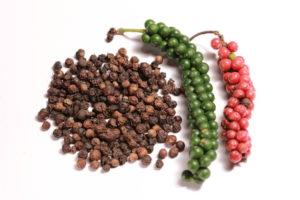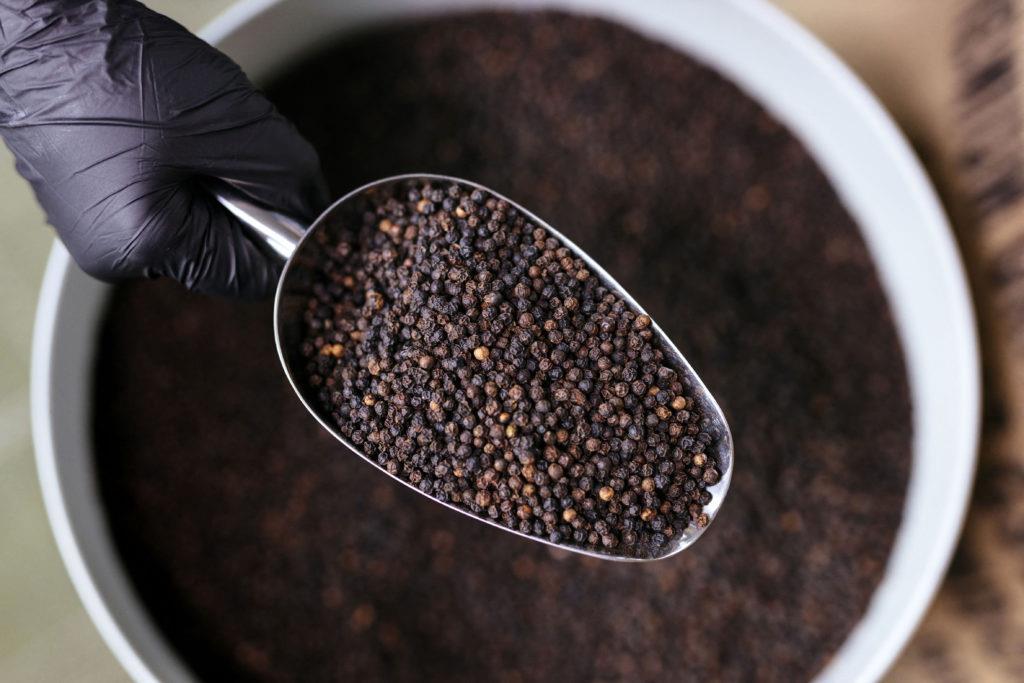
Brazil gains ground as a pepper exporter

São Paulo – Brazil has become increasingly known for its peppers around the world and has gained ground as a supplier to the Arab market. Thanks to the diversity of soils, the country develops different varietals of the product throughout the country. Piper and Capsicum peppers are the main varietals produced, but black pepper (Piper Nigrum) is the top seller. Last year it accounted for 98% of pepper exports from Brazil, state foreign trade statistics center Comex Stat reported.

Black pepper is the most exported
Brazilian pepper exports to the Arab League states have risen above the average. From 2017 to 2021, black pepper sales to this market increased significantly by 47.5% in tonnes and 41.7% in value per year. The increase in sales to other global importers was much smaller. The average annual export growth was 11.6% in tonnes and 2.8% in value.
Trade and Investment Promotion Agency (Apex-Brazil) Market Intelligence manager Igor Celeste believes the marked increase in exports to the Arab countries is related to a larger promotion of the Brazilian product in the Eastern markets, as well as the establishment of new trade ties between national companies and buyers based in the region.
“Some of the key factors that help us understand the high growth in black pepper sales to the Arab countries include the supply shock ushered in by the pandemic that has been a particular hard hit on other producers, as well as the participation of Brazilian companies in big international food events,” Celeste said.
The second largest
In 2020 Brazil ranked second among the largest black pepper exporters in the world, accounting for 15% of the total sales. The country was only behind Vietnam, which accounts for 41.5% of the global trade.

Brazil could gain even more ground as an exporter
Espírito Santo Pepper and Spice Exporters Association (ACEPE) president Rolando Martin says the Brazilian black pepper market could grow even further.“We are seeing the Vietnamese market, the largest Piper pepper producer, reducing its production amount, and this gap could be filled by Brazil, the second largest producer. We are forecasting an increase (in sales) of black pepper not only to the Arab countries but the whole world in 2022 and 2023,” he said.
Getting a good place in the global ranking was only possible because the country has maintained an exponential growth rate in both production and exported value. From 2012 to 2021, the amount of black pepper exports jumped from USD 191 million to USD 306 million.
To meet the demand, in one year production increased by 31 tonnes. In 2021, black pepper production reached 145,000 tonnes, while exports amounted to 92,000 tonnes. Germany, United States, United Arab Emirates and Egypt are some of the top importers. The Arab market, led by the UAE and Egypt, imported some 26,5000 tonnes of black pepper last year.
From 2012 to 2021, sales to the UAE were up 57%, while sales to Egypt stepped up by 21%,” Celeste said. Other Arab countries like Morocco also saw an increased demand in recent years.“In 2012, Brazil exported USD 663,000 to the Arab countries, while in 2021 the value increased to USD 39 million,” the Apex-Brasil's Market Intelligence manager said.
Espírito Santo
Espírito Santo is the state that that stands out the most as a black pepper exporter in Brazil as the lands and climate are conductive to planting the culture. Rolando Martin said the state accounted for almost 55% of total exports in 2021.
“In Espírito Santo most production comes from family farms. According to the Capixaba Institute for Research, Technical Assistance and Rural Extension (Incaper), there are some 11,500 black pepper producers in the state. The producers plant in farms from 5 to 15 hectares,” Martin said.
Pará and Bahia come second and third as Brazil's largest black pepper exporters, at a 34% and a 8.8% share, respectively.
Capsicum peppers

Ribeiro researches peppers
Despite being a minority in exports, with only 1,900 tonnes sold in 2021, the production of Capsicum is concentrated in major production regions in Brazil like Goiás, Minas Gerais, São Paulo, and Sergipe.“Their cultivation is done mostly by small- and medium-sized farmers, with a high involvement of family labor,” agricultural research company Embrapa Hortaliças Capsicum pepper genetic improvement researcher Cláudia Silva da Costa Ribeiro says.
According to her, these peppers grow well in the country because they are originally from the American continent.“Before the discovery of Americans, the indigenous peoples were already using the Capsicum pepper to add flavor to and preserve foods, as they did not know salt. From the first varietals of pepper taken to Europe, new types of Capsicum, including some sweet ones, were selected like the bell pepper and the red pepper for making paprika, products that are now exported from Brazil.”
Moreover, peppers grow all year round in Brazil, and farms are spread across all regions, Ribeiro says. In the North region, some of the favored peppers are habanero-type pepper and Cumari do Pará. In the Northeast region, Malagueta reigns. In Southeast , the most common peppers are Ají chili, Cambuci and Cumari. In the Center West , weak peppers stand out like Cumari do Pará. The South, as it's a more colder region, produces less Capsicum. Top varietals are Ají chili and Jalapeño.
*Special report by Rebecca Vettore for ANBA
Translated by Guilherme Miranda
©Christoph Hardt/AFP Port of Vitória/SuppliedThe post Brazil gains ground as a pepper exporter appeared first on Agência de Notícias Brasil-Árabe .
.jpg)
Legal Disclaimer:
MENAFN provides the
information “as is” without warranty of any kind. We do not accept
any responsibility or liability for the accuracy, content, images,
videos, licenses, completeness, legality, or reliability of the information
contained in this article. If you have any complaints or copyright
issues related to this article, kindly contact the provider above.


















Comments
No comment